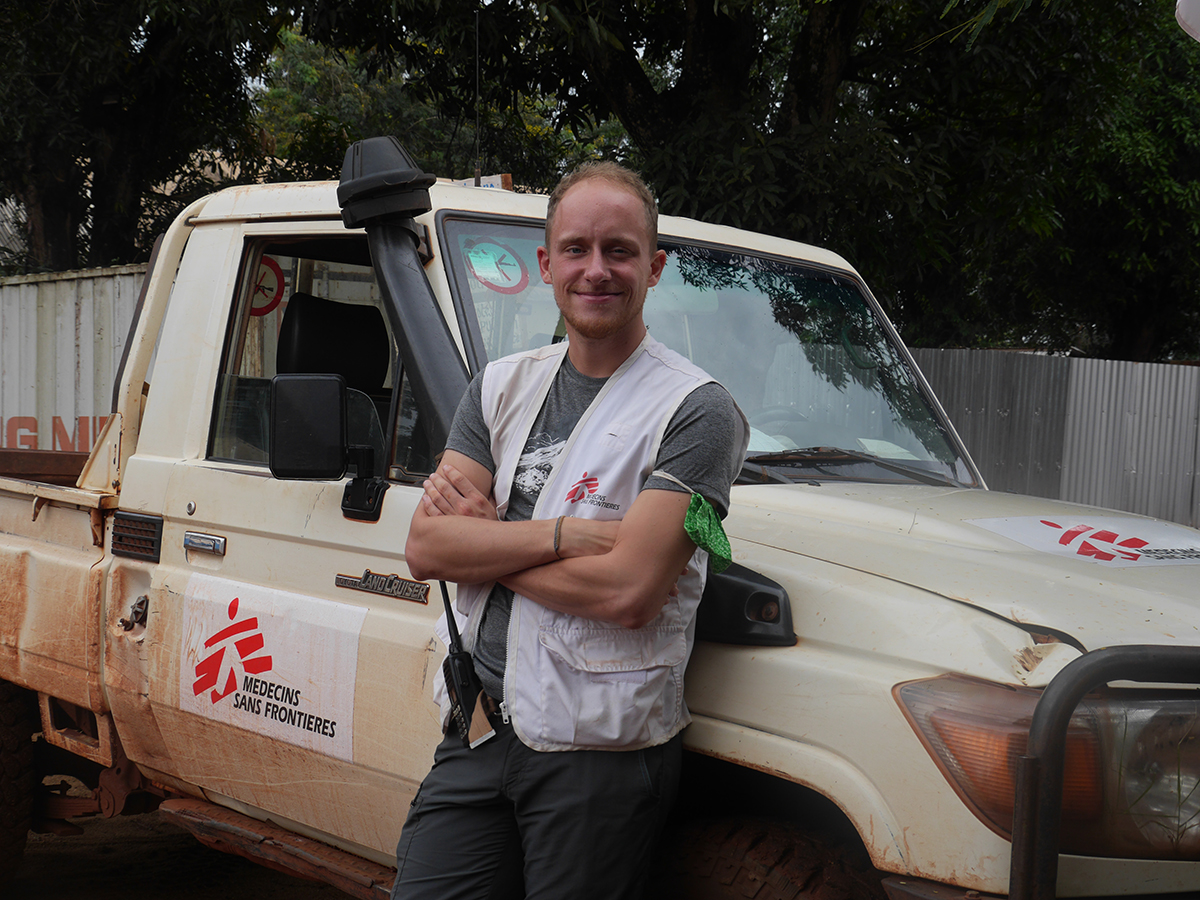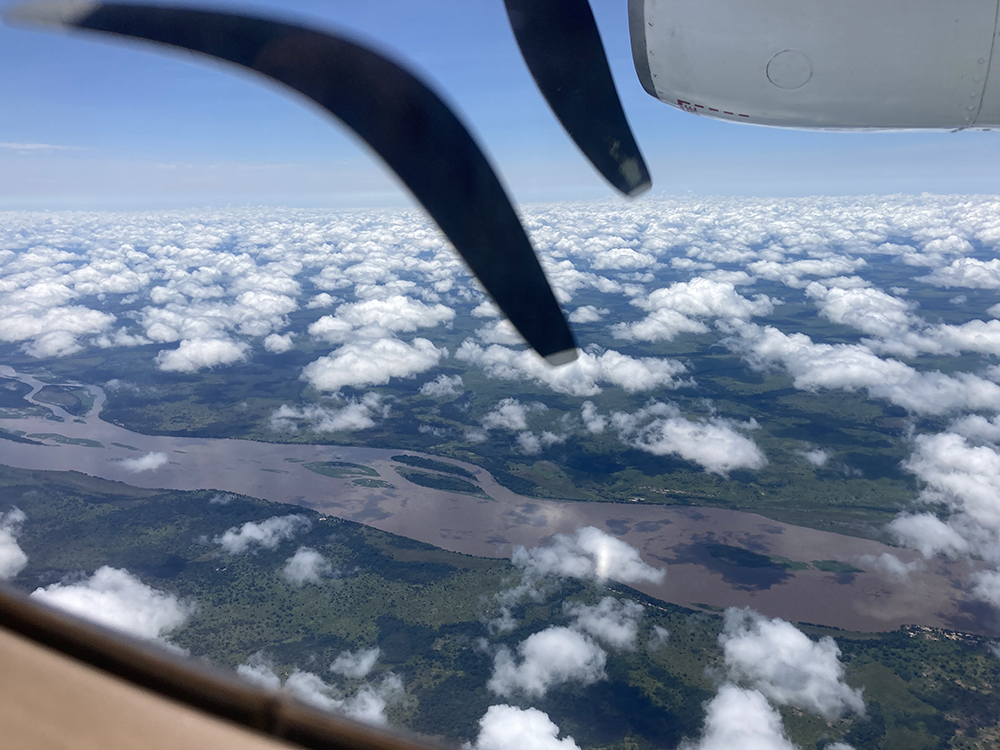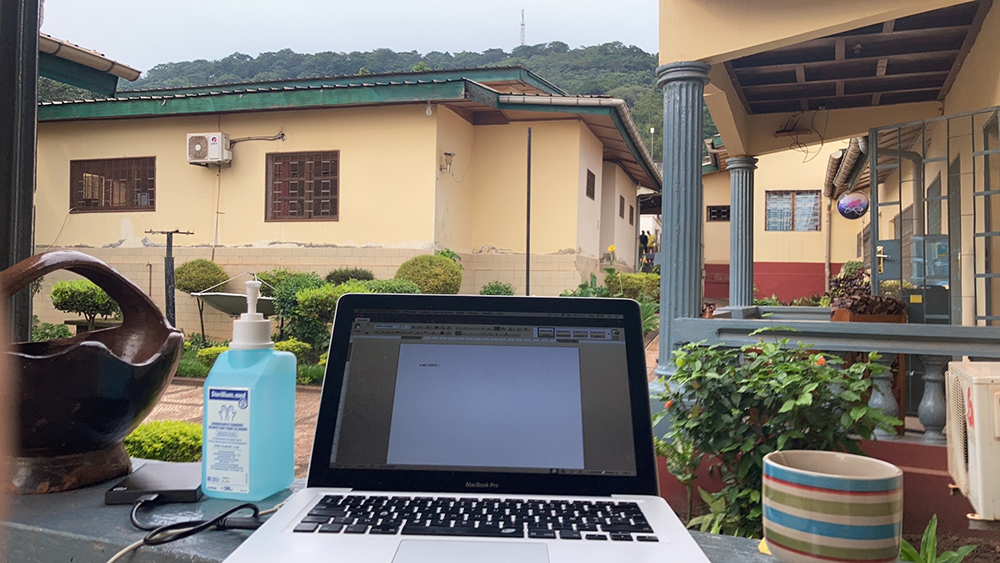First steps in a new country
It is hot and the air is very humid, but it hasn't rained yet. I wonder if the moisture is from the sky, from the ground, or if it's just me sweating. In fact, I think the earth is sweating. I also know it's the rainy season, but I haven't seen a storm yet.
After all, I only arrived last night.
Another crazy thing about this climate is that smells seem muffled, exaggerated and mixed at the same time. They have that something unique that I have never found in Belgium.
I don't know if I have a good sense of smell, but I do remember them. In writing this, I remember Liège, in April 2014, when I got out of my mother's car, which had brought me home after a three-month ethnographic field trip in Kinshasa. I remember getting out of the car and saying to her "Mom, this is crazy, I recognize the smell of the street!"
I suddenly realised that I was home and I started to cry like a kid.
Bangui
I am writing to you from Bangui, Central African Republic. I'm glad to be here. I am sitting on the terrace of my room and I like what I see: three paths paved with small pebbles, surrounded by small plants and squat and bushy palms as well as other terraces inhabited by a few colleagues I met the day before or in the plane.
A lizard, small, but fast enough and determined enough to come up to distract me. Above the roof of the building in front of me, a hill dotted with trees. I wonder if there are mountains.
In a corner 15 metres away, I also see a modest chair where a guard is serenely seated. A little further on, a really quiet road, a sign that we are more in a residential area. Behind me, a sun that will set, suddenly, in an hour and a half.
And then the smells and the heavy, humid air.
Quarantine
I am in quarantine in a hotel located on the outskirts of the Central African capital. I was driven here last night from the airport, when it was already dark. Clearly, my experience in the Central African Republic is meagre: it boils down to this minibus ride. Nonetheless, the place already intrigues me and brings with it a cocktail of indecipherable emotions. A kind of mix between excitement and motivation, happiness and curiosity, determination and indignation.
Because despite the absence of an incredible adventure to relate, I assure you that this airport-hotel trip is already, if we take the time to look at it, a journey worth telling.
A journey worth telling
I get up from my seat, 31L. I've been sitting there since 6.30am, but for once, it’s been cool. My neighbours were nice and they were wearing their masks. I was in the corner and no one was sat behind me, so I could safely lower my seat and prop my head in the window to try to sleep.
In the end, I watched TV series the whole way. I also contemplated the grandeur of Africa, turning from yellow to orange, then to light green and dark green, the gradation of colours gradually blurred by a thick jungle in which brown and wild rivers meander. I told myself that one day I would like to take a canoe ride on it. I also told myself that it's cliché to think that but I didn’t care.
Then I saw the tin roofs which remind me of the outskirts of Kinshasa but which, this time, seem more scattered and buried in the trees. I wondered how many people live under each one.
At one point I felt that we were flying super low, and I wondered what goes through children’s minds when they see and hear planes brushing their houses. I think about what they would think about if they were sitting in seat 31L and seeing their homes, their rivers, their forests, their country from above.
In short, the flight went quickly.
The airport
I have been to several airports in Africa before, but this one I find crazy. There are no large aircraft except ours, but there are dozens of small propeller planes, belonging to several NGOs. I recognize two with MSF logos. No doubt one of these will take me, after my quarantine, to Bangassou, my ultimate destination.
I also see soldiers, but fewer than I was told to expect. I wonder how all these people were able to fit on the plane. I wonder what people are coming here to do and who they are going to meet tonight. How long they are staying. Whether they live here.
As I move forward in the long queue, I see that there are a lot of health workers taking passengers' temperatures, handing out informative flyers about coronavirus, as well as hydroalcoholic gel, filling in forms.
Beside me is Florence, who is on her first MSF assignment and who tells me that she is very happy that I am here. It makes me happy and reminds me of when I landed in Nigeria on my first assignment, too, except I was alone.
We spend two hours getting back in line, going through passport and visa control, then picking up our bags. It has to be said that there are really a lot of people for such a small space and a small conveyor belt.
Everyone’s fatigue, combined with absence of machines to dispatch all those bags off the plane does not help us gain time, but we somehow end up outside, with the MSF driver and two other colleagues who have already been waiting for us a long time.
On the road
The car is a minibus repainted in MSF colours. Because of COVID-19, we are all sitting in separates row in the back of the vehicle.
It’s dark but the headlights of other cars, taxis and motorcycles are swarming around us.
I wonder how the driver manages. In fact, I tell myself, they all manage, and in the end this mess is more organised than it looks.
I'm still struck by the fact that a car’s horn is used here for its original purpose: to announce the presence of the vehicle. And drive.
As well as the hive of headlights, there are the two sides of the street, which unfurls, becoming increasingly bumpy. I see lots of people; yellow and red shopfronts, bars, blue plastic chairs, motorcycles by the hundreds, people and more people, generators, little embers cooking casseroles and what I imagine to be doughnuts, chicken, bananas. All of a sudden I'm hungry.
Then the road changes from tarmac to earth, and back to tarmac again, until a lull and a lighted crossroads. The driver stops, grabs the radio and says the classic words “safely arrived at destination”, which reminds me that I am on an assignment with MSF.
That makes me smile.
Back on the terrace
It is now 6:01 pm and it’s pitch black. I am still on my terrace writing to you.
Suddenly the guard gets up from his chair, walks determinedly towards me, and says "I want to press your switch."
I tell him I'll do it myself, since this is technically my quarantine area and only I am meant to touch the things within it.
He insists and pushes on the switch, turning on the outside spotlight. He smiles at me.
I offer him antibacterial gel and he responds favorably, with an outstretched but hesitant hand. He rubs the gel into his hands without much determination. As he walks away, smirking, he tells me, “No, it's okay, I spent four months here in lockdown and got nothing. God is great. He is with all of us." I rush to my notebook. I write down his remark and tell myself, like a good anthropologist, it's super interesting.
Well. I’ll be happy to share my thoughts with you in a future post. But I'm telling you now, it's official, I can't wait to get out of quarantine and meet these people.


